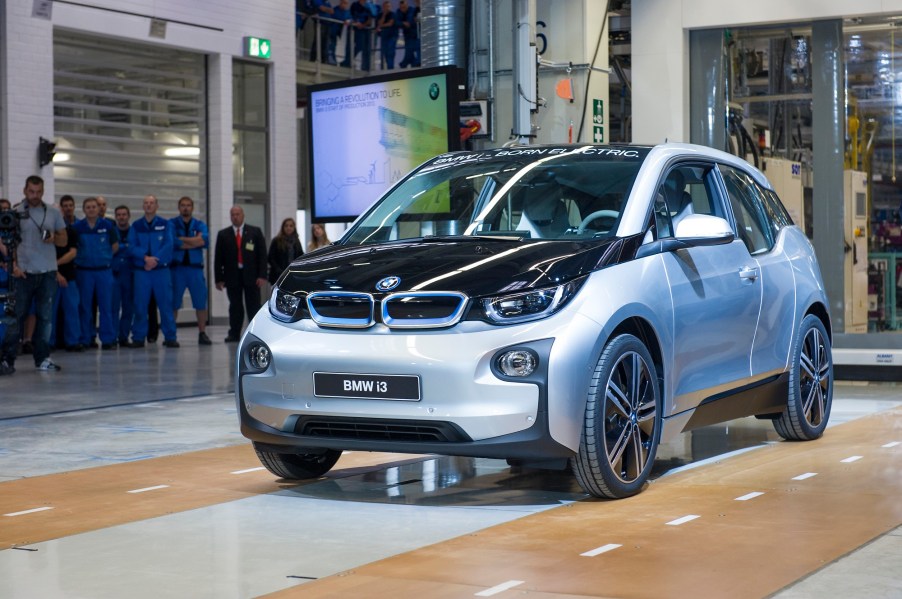
1 EV Loses Value Like No Other
Buying an electric vehicle (EV) is already a sizable commitment. You’re trading in the convenience of an internal combustion engine (ICE) powered car for range anxiety, expensive insurance, and perhaps worst of all, rapid depreciation. Still, you can choose one of the electric vehicles that hold more value, like the Tesla Model 3, instead of those with the lowest resale value and highest depreciation. However, there is one EV culprit that really loses its value quickly: the BMW i3.
Do BMW i3 EVs lose their value?
Unfortunately for BMW i3 owners, the EVs do not hold value well. According to a study by iSeeCars, BMW i3 owners should expect their little German EVs to depreciate by as much as 60.4% in the first 36 months of ownership. That is extremely unfortunate for i3 owners who want to upgrade or sell their BMW.

How much should you pay for a BMW i3?
The latest BMW i3s had a starting price of $45,445, which is close to the national average for new cars. However, given its preowned status, you should be spending less on an i3. Furthermore, due to how rapidly the BMW EV loses its value, car shoppers should expect to save $32,750 on a model three years old or older.
Those savings are tremendous, especially compared to the next competitor on iSeeCars’ study, the Nissan Leaf. Specifically, the Leaf offers savings of $19,928 over the average new car purchase.

What EVs hold more value than the BMW?
If you’re looking for an EV that holds more value than a BMW i3, the list starts with Tesla. A Tesla Model 3 depreciates much less than any other EV, to the tune of just 10.2% in three years. That is considerably better than the EV depreciation average of 50.2%.
Still, if the Tesla Model 3 isn’t for you, other options exist. For instance, a Chevrolet Bolt loses 47.5% in the first 36 months, which is much better than the BMW i3’s average, if quite a bit worse than Tesla EVs.
Why does the little BMW EV lose so much value?
Depreciation is directly related to popularity and demand. The North American public simply didn’t want the BMW i3 as much as the Tesla Model 3 or Model S. Furthermore, EVs depreciate more than gas-powered vehicles.
Part of the reason for this gulf is the $7,500 federal tax credit that car shoppers receive when they buy a new EV. That significantly drives the price down below the starting average and compromises resale value. It is unfortunate for current i3 owners but good news for used car buyers. According to the iSeeCars study, savvy shoppers can enjoy an average used price of $21,432, which is much lower than the average starting price when the car was new.
Is the BMW i3 a good buy?
If you’re in the market for a preowned EV, an i3 could be a great option. Given how much value the EV loses in the first three years, the savings are enormous. It isn’t setting any records with an electric range of 153 miles. However, pairing the i3 with a gas-powered range extender bumps the range up to 200 miles and makes the car function more like a plug-in hybrid (PHEV).
Scroll down to the following article to read more about EVs!



